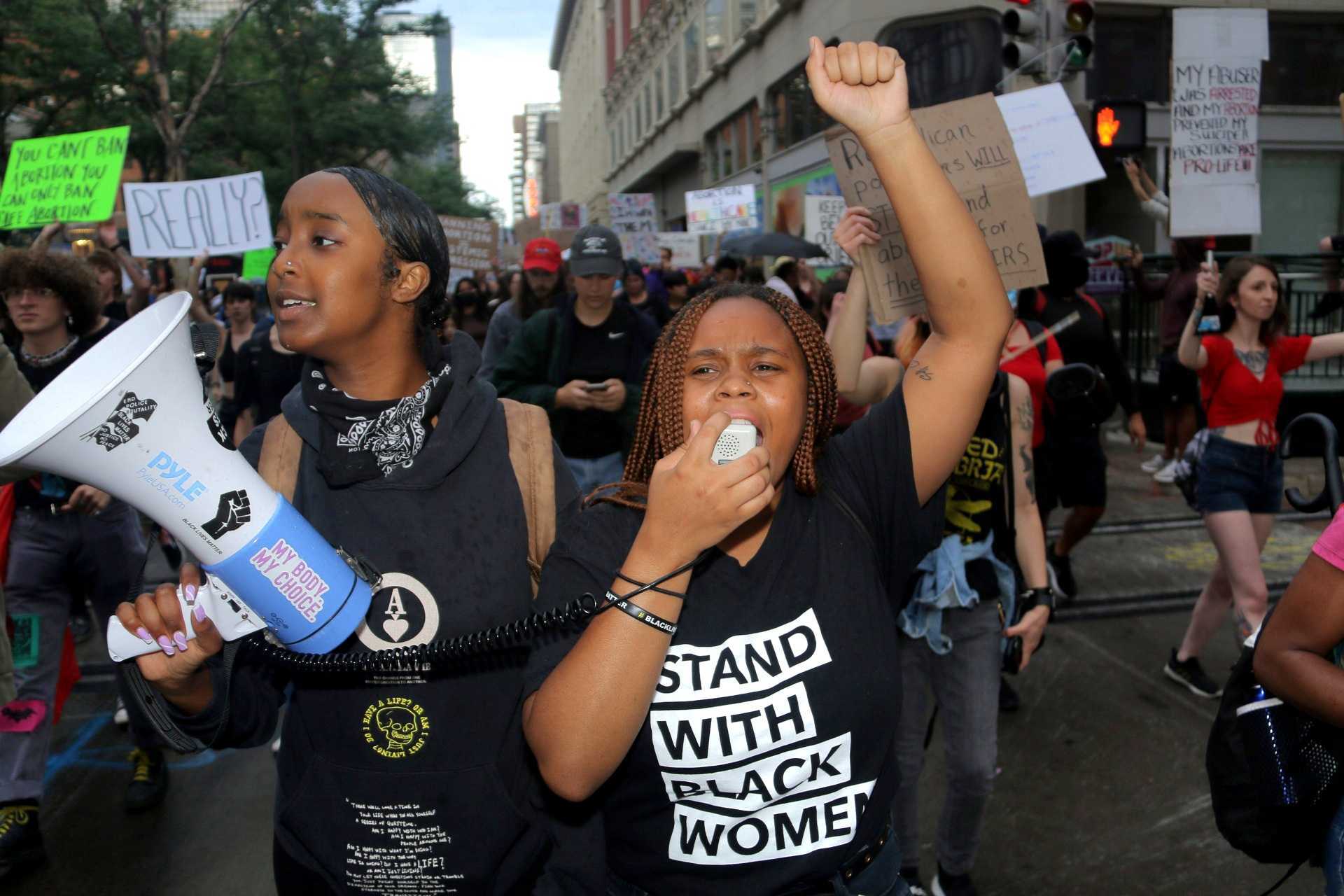
Pregnancy would get more deadly if abortion were banned nationally in the United States. A recent study by Colorado researchers found that maternal mortality would increase by a rate that one expert said caught her by surprise.
The study finds a national ban on abortion would sharply increase maternal mortality, by 24 percent. And the figure is even higher for pregnant Black patients.
“It's a very conservative estimate that we have done,” Amanda Stevenson, the lead author, told CPR. “We can expect that pregnancy will get more deadly when abortion is not available.”
Last month, the U.S. Supreme Court voted 6-3 to overturn Roe v. Wade, ending the constitutional right to abortion that existed for nearly five decades after the original decision.
“I think it really solidifies what we have all been saying and have been anticipating, that if abortion is inaccessible in as many as 26 states, we are going to see poor health outcomes result, and that this is very direct,” said Dr. Kristina Tocce, vice president and medical director of Planned Parenthood of the Rocky Mountains. “Patients who don't have access to abortion care have increased morbidity and mortality during pregnancy.”
Researchers with CU Boulder's Institute of Behavioral Science — Stevenson and coauthors Leslie Root and Jane Menken — used newly available national and state data from 2020 to update estimates on how maternal mortality would change if zero legal abortions occurred in the U.S
The estimate puts a number on the increase that could occur after a total abortion ban. The change would come solely due to the “greater mortality risk of continuing pregnancy to term compared to having an abortion,” according to the study.
After the first year of a national abortion ban, the researchers estimated increased exposure to the risks of pregnancy would add 210 maternal deaths per year, a 24 percent increase from 861 to 1,071.
The findings of the CU researchers have not yet been peer reviewed.
After the Supreme Court's ruling, Colorado is one of few places in the region where abortion access is protected by law.
Before this year, Colorado law did not say anything about abortion. That meant it would have remained legal without Roe because there was no law banning it. But during the most recent legislative session, Democrats passed the Reproductive Health Equity Act along party lines. Gov. Jared Polis signed it into law in April.
According to the study, the impact of a national ban would be greatest among non-Hispanic Black people, who would see a 39 percent increase in maternal deaths.
“They experience radically higher rates of maternal mortality in general,” three to four times higher than non-Hispanic white people, said Stevenson. “The elevated rates experienced by Black people in the United States are not just due to poverty. They're not just due to any single factor, except racism.”
“That took my breath away,” said Tocce. “Yes, we absolutely know that health outcomes are affected adversely if patients don't have access to abortion care.”
Still, Stevenson said the decision’s impacts will be far-reaching.
“People will turn to unsafe methods of termination potentially, although hopefully not,” she said. “People who provide health care, health providers, doctors and nurses and so forth may begin surveilling pregnant people in ways that make pregnant people not want to present for care because they're afraid of being prosecuted.”
The researchers also estimated, by state, the number of additional maternal deaths that could occur in the 26 states that have either banned abortions or are considering likely to do so by the Guttmacher Institute, a research and policy group committed to advancing sexual and reproductive health rights.
They found increases in some states, like Florida and Georgia, could be up to 29 percent. But in others, like Nebraska, Missouri and West Virginia, which have made it difficult to get an abortion without banning the procedure, it’s expected the figure would see little to no change from the increased risks of staying pregnant.
The researchers estimated that, if no abortions were permitted in those 26 states in 2020, there would have been 64 more mortality-related deaths.
Stevenson argued states should invest in addressing the maternal health crisis and confront the inequalities that fuel the nation's high level of maternal mortality, which far exceeds what’s seen in many other countries.
“Our rates of pregnancy-related death and maternal mortality are up to 10 times higher than other rich countries. So we're very, very much an outlier in that respect. Also, we are the only rich country in the world with increasing maternal mortality,” she said. “Maternal mortality is overwhelmingly preventable death. And so rich countries see their rates go down over time. We, on the other hand, have been seeing our rates go up over time.
“Pregnancy shouldn’t kill people –– in fact, in other rich countries it very rarely does.”









